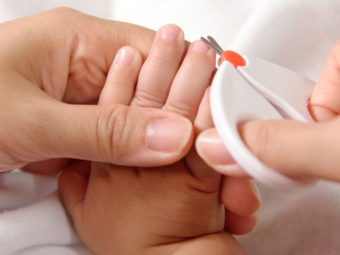
Image: iStock
已经有en certain changes in your child’s behavior off late that you find worrisome? You are not alone. Generally, your child will go through a change of behavior when they are hungry, tired or bored. But sometimes, these behavioral changes can be drastic and a consequence of hormonal changes, puberty, life changes like moving to a new school or traumatic events like their parents getting a divorce. This may derail them from turning into happy, successful adults. So, what do you do? Here are a couple of child behaviors that parents ought to be worried about and what they can do to handle it.
1. Your Child Has A Hard Time Learning Things
Image: IStock
Not every child is academically inclined or has a genius IQ. But, if they are genuinely struggling to pick up new skills and have a hard time staying on the same level as their peers, this needs a parent’s attention. Your child might have a learning disability which means that they will find it harder to learn the same material as another child who doesn’t have the same problem. Maybe they are distracted due to familial issues going on at home and can’t pay attention in class. Whatever the matter may be, it’s your job as a parent to step in.
Keep in mind that yelling at your kids and making them feel like they are failing on purpose is the last thing you want to do. If they do have a learning disability, early detection is the best course of action. If your child gets the help they need along with additional support at school with specialized teachers, they’ll be fine. If it’s due to other issues, minimize these distractions at home so that your child is better able to focus on their lessons.
2. Your Child Has Started Gossiping
Image: IStock
他人的生活感到好奇是很自然的, but when your child takes up gossiping as a hobby, it’s time to put your foot down and rectify this behavioral change. First, make sure they understand the difference between harmless chatter and hurtful gossiping. How does your child talk about others? What are they things they focus on? Even if it’s rare for kids to start rumors, they have no issues spreading them. Your child may not want to harm anyone. Most children gossip in order to fit in because they think it makes them look cooler in front of their peers.
Show them that there are better ways of earning respect from your peers. As a parent, try to explain to them how gossiping is unkind and can hurt people. Ask them if you would like it if their friends spoke about them the way your child speaks of others. Help them gain a new perspective and get them professional help if you think they are turning into a bully.
3. Your Child Has Stopped Playing With Their Friends
Image: IStock
It’s perfectly okay to have disagreements and fights with your friends when you are younger. However, if your child has stopped playing with their friends altogether, you should ask them why. Most of the time kids will resolve these conflicts quickly by themselves but if there has beena rift between your child and their friends for sometime, you might have to get involved.
Don’t do this by calling your child’s friend’s parents. Instead ask them what went wrong and how you can help. Support them as they solve the problem. It might just be a big misunderstanding anyway. Help them practice saying sorry and apologizing if they were wrong.
4. Your Child Is Ungrateful
Image: IStock
Again, your child may not mean to be ungrateful for the things they have or the sacrifices you make for them but sometimes, they may blurt out that they are very rude. For example, if you offer your child something they are not crazy about on their birthday, they may be quick to show their displeasure. But there is no need to be worried. If they understand how their behavior can affect other people, they will develop better empathy toward others. If your child feels entitled to things before they earned them, it’s time to give them a wake up call. Teach your children the value of money and how someone would have had to take the time and money to get them something for their birthday or for Christmas. This way, they will be grateful no matter what they get.
As your children get bigger so do their problems. This means that you will come across some unpleasant behavioral changes that you will have to deal with as a parent. Try to be as understanding as you can while still being firm in teaching them right from wrong. You’ve got this! Happy parenting.

















